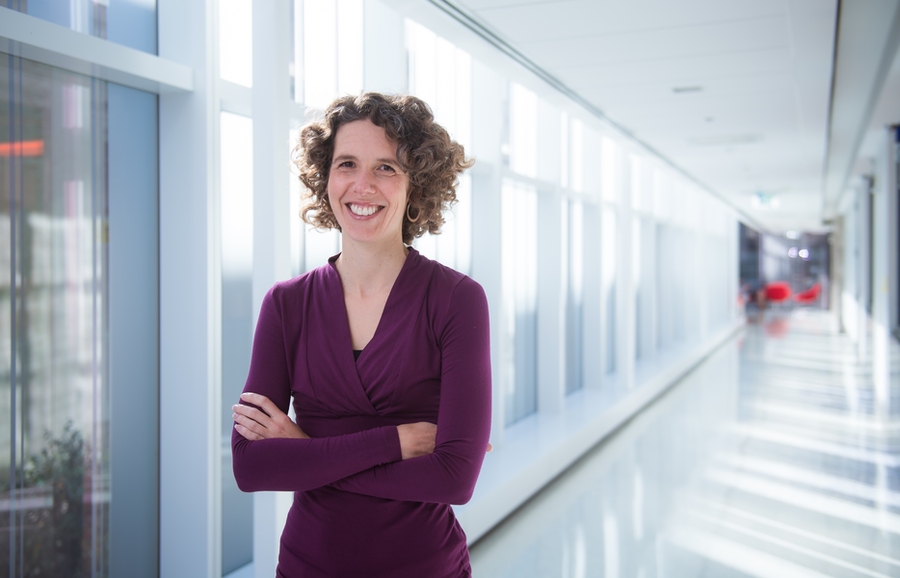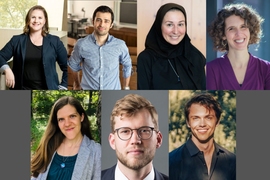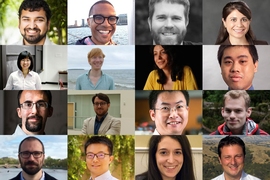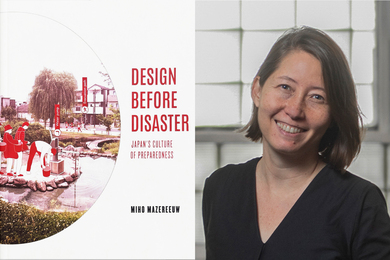The David and Lucile Packard Foundation has announced that two MIT affiliates have been named 2025 Packard Fellows for Science and Engineering. Darcy McRose, the Thomas D. and Virginia W. Cabot Career Development Professor in the MIT Department of Civil and Environmental Engineering, has been honored, along with Mehtaab Sawhney ’20, PhD ’24, a graduate of the Department of Mathematics who is now at Columbia University.
The honorees are among 20 junior faculty named among the nation’s most innovative early-career scientists and engineers. Each Packard Fellow receives an unrestricted research grant of $875,000 over five years to support their pursuit of pioneering research and bold new ideas.
“I’m incredibly grateful and honored to be awarded a Packard Fellowship,” says McRose. “It will allow us to continue our work exploring how small molecules control microbial communities in soils and on plant roots, with much-appreciated flexibility to follow our imagination wherever it leads us.”
McRose and her lab study secondary metabolites — small organic molecules that microbes and plants release into soils. Often known as antibiotics, these compounds do far more than fight infections; they can help unlock soil nutrients, shape microbial communities around plant roots, and influence soil fertility.
“Antibiotics made by soil microorganisms are widely used in medicine, but we know surprisingly little about what they do in nature,” explains McRose. “Just as healthy microbiomes support human health, plant microbiomes support plant health, and secondary metabolites can help to regulate the microbial community, suppressing pathogens and promoting beneficial microbes.”
Her lab integrates techniques from genetics, chemistry, and geosciences to investigate how these molecules shape interactions between microbes and plants in soil — one of Earth’s most complex and least-understood environments. By using secondary metabolites as experimental tools, McRose aims to uncover the molecular mechanisms that govern processes like soil fertility and nutrient cycling that are foundational to sustainable agriculture and ecosystem health.
Studying antibiotics in the environments where they evolved could also yield new strategies for combating soil-borne pathogens and improving crop resilience. “Soil is a true scientific frontier,” McRose says. “Studying these environments has the potential to reveal fascinating, fundamental insights into microbial life — many of which we can’t even imagine yet.”
A native of California, McRose earned her bachelor’s and master’s degrees from Stanford University, followed by a PhD in geosciences from Princeton University. Her graduate thesis focused on how bacteria acquire trace metals from the environment. Her postdoctoral research on secondary metabolites at Caltech was supported by multiple fellowships, including the Simons Foundation Marine Microbial Ecology Postdoctoral Fellowship, the L’Oréal USA For Women in Science Fellowship, and a Division Fellowship from Biology and Biological Engineering at Caltech.
McRose joined the MIT faculty in 2022. In 2025, she was named a Sloan Foundation Research Fellow in Earth System Science and awarded the Maseeh Excellence in Teaching Award.
Past Packard Fellows have gone on to earn the highest honors, including Nobel Prizes in chemistry and physics, the Fields Medal, Alan T. Waterman Awards, Breakthrough Prizes, Kavli Prizes, and elections to the National Academies of Science, Engineering, and Medicine. Each year, the foundation reviews 100 nominations for consideration from 50 invited institutions. The Packard Fellowships Advisory Panel, a group of 12 internationally recognized scientists and engineers, evaluates the nominations and recommends 20 fellows for approval by the Packard Foundation Board of Trustees.









